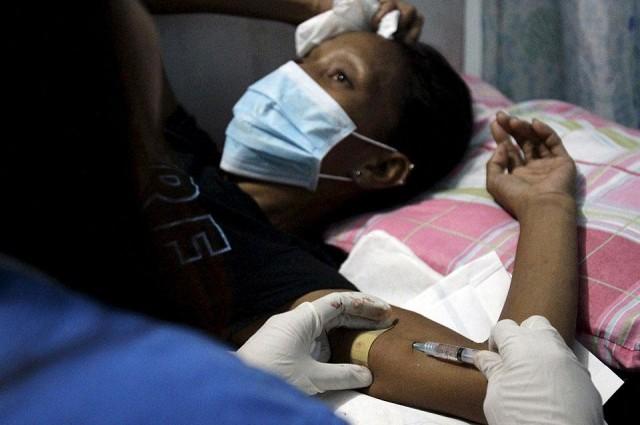Women’s wider access to RH services, contraception seen to address spike in teen pregnancies

Women’s right to access reproductive health services, including contraceptives, should be protected amid the continued increase in the number of teenage mothers, a women’s group leader said Monday.
Magdalena Bacalando, president of Pinagsamang Lakas ng Kababaihan, Kabataan at ibang Kasarian and a member of the Likhaan Center for Women’s Health Board of Trustees, made the call during the Purple Action Day: Call for Accountability/Women Against Impunity event led by the Commission on Human Rights to kick-start the celebration of March as National Women's Month.
“There is a need to protect the sexual and reproductive rights of women. Yes, the RH law was passed in 2012, but this law is yet to be fully implemented. Hindi pa natatamasa ng mga kababaihan ang access sa sexual education services. Maging education on family planning, napakailap,” Bacalando told GMA News Online.
Leaders of women’s groups call for equal pay, employment and protection of rights of women. They are joined by CHR spokesperson Jacqueline de Guia (1st from right) @gmanews pic.twitter.com/GaCk9G4QJo
— Llanesca T. Panti (@llanescajourno) March 2, 2020
“On distributing contraceptives [to] those who are sexually active, you need consent [from parents]. Pinipigilan ng gobyerno ang family planning, kaya sa NGO [nongovernment organization] galing ang tulong. So access is really very limited. As a result, cases of unintended pregnancy and even abortion is increasing,” Bacalando added.
The Department of Health divides the adolescent bracket into three groups: not sexually active, sexually active, and pregnant or already a parent.
Two weeks ago, a study presented by the Commission on Population and Development showed that there has been a 63% increase in incidence of pregnancy among girls aged 10 to 14 in the Philippines in 2018 compared with 2011 data, and that 2,250 babies were born to such young mothers in 2018 alone.
No budget
Bacalando said the Senate’s move to cut the P195-million 2020 budget for the purchase of progestin subdermal implants (PSIs), a preferred contraceptive among women, is also a blow to the reproductive health program.
“Look at that budget on family planning. Pinabawasan pa ni Senator Sotto ang pambili ng implant. Makabago sana ito at convenient para sa kababaihan. Napakaraming kababaihan ang may gusto nito,” she said.
Senate President Vicente Sotto III has claimed that the implants are abortifacients, citing a US anti-choice advocate.
The Department of Health, however, has emphasized its stand that using PSIs is an effective, beneficial and convenient way to aid in birth spacing for women.
The Food and Drug Administration has also determined that the implants are non-abortifacient.
“Three years kasi ito [na hindi magbubuntis]. Kahit sa health care providers, hindi hassle ang distribution nito. Pero nakapa limited ng access sa implant,” Bacalando added.
Under the Reproductive Health law, abortifacient refers to "any drug or device that induces abortion or the destruction of the fetus inside the mother's womb or the prevention of the fertilized ovum to reach and be planted in the mother's womb upon determination of the Food and Drug Administration (FDA)." — BM, GMA News



